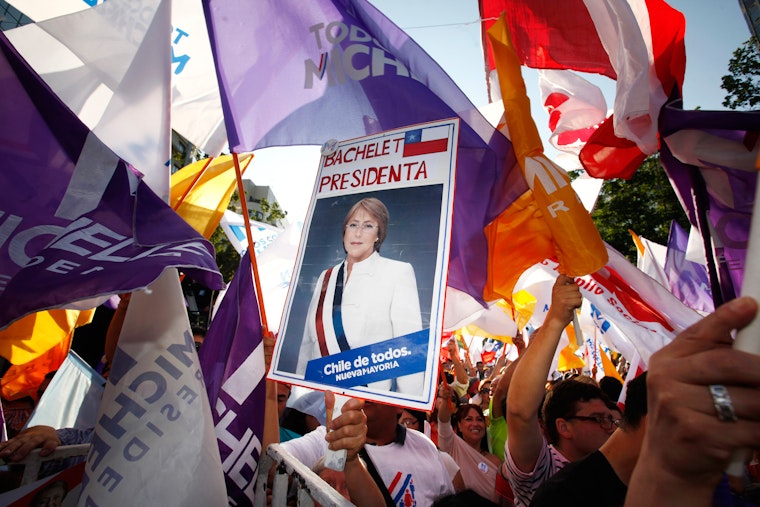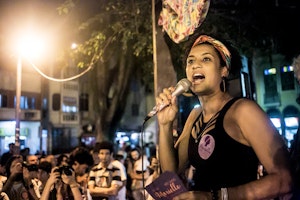Following the Money through Chilean Politics
By Pablo Collada

The confluence of money and politics hobbles democracies throughout the Americas, from the United States, where presidential elections are marred by murky campaign financing, to Brazil, where a series of scandals have led to a severe political crisis, culminating in a controversial impeachment process against the country’s president. These and other cases have made it clearer than ever that the costs and benefits of democracy are not being distributed equally.
Chile, in particular, may exemplify this problem more than any other country.
Chile is the most unequal country among members of the Organisation for Economic Co-operation and Development, and is located in the most unequal region in the world. A military dictatorship lasting almost 20 years was followed by a democratic transition led by political parties that were only awakening after a slumber of inactivity. The result was a country characterized by an opaque political financing model and a neoliberal economic system in the extreme, the impact of which is now only beginning to flourish.
The nonprofit Ciudadano Inteligente was established in 2009 to reduce inequality in Chile and other Latin American countries by focusing on strengthening democracy, defending transparency, and making use of technology. Since then, we have launched projects that support access to information, electoral monitoring, oversight of government functions, and legislative openness, among others.
One of our most consistent efforts has been taking place since 2013, when we started asking Chilean candidates for elected office, “Who’s funding you?” Existing laws did not allow us to obtain this information in any official manner, so we launched this public campaign to raise awareness of the issue. Unfortunately, despite our insistence, legislators refused to act to make such information more transparent.
In September 2014, everything changed. Scandals—including one among a financial group and several members of Congress involving falsified receipts for services not rendered—revealed a campaign finance system that consistently operated outside the law. A series of investigations and indictments have implicated members of Congress, current and former cabinet ministers, and even the president’s daughter-in-law. The result has been a profound decline in the legitimacy of public agencies, which have been receiving their lowest approval ratings since democracy first took hold almost 20 years ago.
Ciudadano Inteligente debated what our continued role should be as these investigations unfold. It seemed as though the only people talking about the scandals were those implicated in them, so we decided a new voice—neutral and citizen-driven—was needed.
We decided to pursue litigation to hold accountable those responsible. We brought legal actions based on claims of bribery directly against legislators, former legislators, and former ministers who engaged in irregular campaign finance practices. This month, a politician was jailed as a result of the bribery charges. The trial continues.
In response to the scandals, Chilean President Michelle Bachelet called for a Presidential Council Against Corruption, Influence-Peddling, and Conflicts of Interest, which Ciudadano Inteligente participated in. The council’s actions led to a series of proposed legislative reforms related to political financing, political parties, and various other matters.
While several reforms have already been carried out, others are still pending. Together with Espacio Público, an organization that works to improve public debate in Chile, we launched an Anti-Corruption Observatory [site in Spanish] to track the progress of the proposals and follow up on their consideration by Congress.
Chile’s history in this respect is still being written. It would be naïve to think that, after a few scandals, the country would simply redistribute its power in a more democratic fashion. Yet the current flow of information and the continued push for accountability must be celebrated and supported.
It is time for everyone to have a say in decision making on public affairs, and to acknowledge that citizens’ voices need to be heard: on social networks and in courtrooms, in Congress and on the streets, in households and offices. Every day.
Ciudadano Inteligente is a grantee of the Open Society Foundations.
Pablo Collada is executive director at Ciudadano Inteligente.


